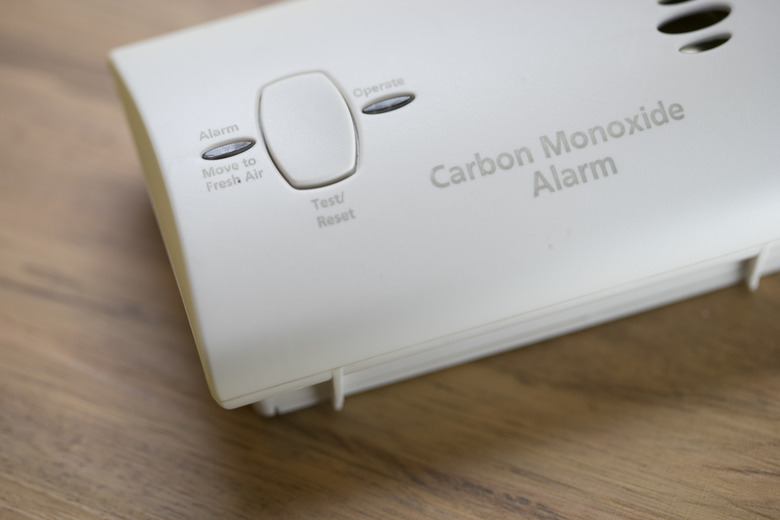Where Can I Get Free Carbon Monoxide Detectors?
A carbon monoxide detector could save your family's life by alerting you to the presence of the deadly gas. Basic models are relatively inexpensive, so the cost shouldn't stop you from getting these essential pieces of home safety equipment. But if affording a carbon monoxide detector is difficult, there are options for finding free carbon monoxide detectors if you qualify.
Tip
Cities and fire departments commonly offer free carbon monoxide detectors to people who meet eligibility requirements. If you're a renter, you might be able to convince your landlord to install carbon monoxide detectors.
Importance of Carbon Monoxide Detectors
Importance of Carbon Monoxide Detectors
Having working smoke and carbon monoxide detectors in your home is a must. Carbon monoxide has no odor or color, meaning the only way you can tell if it's in your home is with a detector. Any appliances in your home that burn fuel, such as furnaces, gas stoves and fireplaces, can cause a buildup of carbon monoxide in your home. Vehicle exhaust that enters the home through an attached garage is another potential source. Early symptoms often include headache, vomiting, dizziness and confusion, but it can cause death quickly.
Cost of Carbon Monoxide Detectors
Cost of Carbon Monoxide Detectors
Carbon monoxide detectors range from $15 to $150 on average. A stand-alone carbon monoxide detector that you either plug into an outlet or install like a smoke alarm is usually the most affordable option. You can also get a combination smoke and carbon monoxide detector unit, which averages $35 for a basic model and can cost up to $120 if it has smart capabilities. Special carbon monoxide detectors for the hearing impaired are often more expensive.
Free Community Resources
Free Community Resources
One of the most common ways to get a free carbon monoxide detector is through community programs. Cities and counties often have free smoke and carbon monoxide detectors available, typically through the fire department. These programs are often based on income, meaning you'll need to qualify based on the income requirements. Those requirements can vary significantly from one city to another.
The best way to find out about these programs is by contacting your city or local fire department. Many communities have information available on their website that explains the free program. You might need to fill out an application or provide proof of income to verify that you qualify.
Landlord-Provided Carbon Monoxide Detectors
Landlord-Provided Carbon Monoxide Detectors
Some states require residential dwellings to have carbon monoxide detectors. The specific requirements vary by state. Some only require them in new-construction residences. Others only require them in residential structures with equipment that uses fossil fuel.
If you rent a home or apartment in a state that requires carbon monoxide detectors, ask your landlord about installing a carbon monoxide detector for you. Most states don't require landlords to provide a detector, but your landlord might be willing to install one even if it's not a legal requirement.
In some states, the landlord is responsible for providing the carbon monoxide detector for the tenant. In North Carolina, landlords have to provide a working carbon monoxide detector for every level of a rental. It has to be operable when a new tenant moves in, but it's up to the tenant to change the batteries and keep it operational. Oregon requires landlords to install carbon monoxide detectors if the rental has a source of carbon monoxide, such as a gas appliance.
Seller-Provided Carbon Monoxide Detectors
Seller-Provided Carbon Monoxide Detectors
If you're buying a home, check to see if it has working carbon monoxide detectors in it. They typically last five to seven years, so if the home has relatively new carbon monoxide detectors, you're set. Some homes include carbon monoxide detectors as part of the home security system.
If not, look at your state regulations to determine if your state requires carbon monoxide detectors in private residences. While the seller isn't required to provide you with a carbon monoxide detector, you might be able to request one in your offer. Keep in mind that in a competitive home market, it's best to ask for as few extras from the seller as possible since there will likely be multiple offers. In that situation, it's best to buy your own carbon monoxide detector after purchasing the home.
